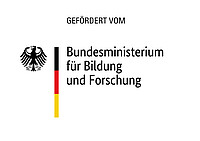SAM-SMART
Security Assistance Manager for the Smart Home
SAM Smart stands for "SicherheitsAssistenzManager" (Safety Assistance Manager), which is designed to assist consumers with "tedious" and "error-prone" safety tasks without restricting their autonomy. The final product should proactively warn of possible safety risks in an unobtrusive but clearly visible way - and interact with consumers in a natural way using speech. Its ultimate aim is to retrieve detailed, comprehensible information on the potential threat.
The project seeks to investigate and develop cost-effective security solutions and automated AI-based corrective measures for low-quality products for the mass market. For this purpose, the project relies on a living lab with private households as well as a smart home test lab to be able to research and develop solution approaches. Important parts are the development of a privacy dashboard and an ambient security display, which provides users with an overview of the security of the devices used. Furthermore, a voice-based assistance system will be used. This should enable consumers to assess smart home devices according to their specific risks and to make decisions regarding configuration and further use based on this (e.g. secure router configuration via a device). Furthermore, data protection-friendly solutions for voice assistance systems will be evaluated.
The project is done with close collaboration between the Institute for IT Security (Prof. Eisenbarth and Prof. Mohammadi) and the Institute for Medical Informatics (Prof. Marcin Grzegorzek). The focus of this collaboration is to consider privacy, data protection and data security aspects in all developments of the Institute of Medical Informatics in the areas of pattern recognition and machine learning. Among other things, it is important to rule out the possibility that increasingly complex methods of pattern recognition, which allow for inferences at ever higher semantic levels, can be used to identify individuals even in the case of data sets that are avoidably pseudonymized and anonymized. This work is particularly relevant for health data, where re-identification could lead to exposure of an individuals sensitive medical information. Quantifying and mitigating this risk helps in conducting ethical research and ensuring privacy protection.
Funding:
3.23 million Euros via the Federal Ministry of Education and Research (BMBF) of the Federal Republic of Germany together with the partners: University of Siegen, open.INC GmbH, nuspace GmbH, automITe-Engineering GmbH, Langlauf Security Automation GmbH. The project is funded by the European Union - Next Generation EU. Grant number: 16KISA074
Project duration: December 2022 - December 2025
Links:
News article University of Lübeck (German): https://www.uni-luebeck.de/aktuelles/nachricht/artikel/schutz-vor-smart-home-bedrohungen.html
Project website: https://samsmart.de/en/
News article BMBF (German): https://www.forschung-it-sicherheit-kommunikationssysteme.de/projekte/sam-smart
Project Coordination
Esfandiar Mohammadi, Dr.

Institut für IT-Sicherheit (ITS)
+49 451 3101 6609
esfandiar.mohammadi(at)uni-luebeck.de
Szymon Sieciński, Dr.

Institut für Medizinische Informatik
+49 451 3101 5612
szymon.siecinski(at)uni-luebeck.de
Project Members
Abid Hasan, M. Sc. Md

Institut für Medizinische Informatik (IMI)
md.hasan(at)student.uni-luebeck.de
Laura Liebenow, M. Sc.

Institut für Medizinische Informatik (IMI)
laura.liebenow(at)student.uni-luebeck.de
Jan Wichelmann, M. Sc.

Institut für IT-Sicherheit (ITS)
+49 451 3101 6606
j.wichelmann(at)uni-luebeck.de
Project Manager
Marcin Grzegorzek, Prof. Dr.-Ing.

Institut für Medizinische Informatik (IMI)
+49 451 3101 5603
marcin.grzegorzek(at)uni-luebeck.de
Thomas Eisenbarth, Prof. Dr.-Ing.

Institut für IT-Sicherheit (ITS)
49 451 3101-6600
thomas.eisenbarth(at)uni-luebeck.de




![[Translate to english:] Link COPICOH [Translate to english:] Link COPICOH](/fileadmin/_processed_/9/1/csm_LI-In-Bug_8ed46db0dc.png)
![[Translate to english:] Link COPICOH [Translate to english:] Link COPICOH](/fileadmin/_processed_/1/b/csm_vimeo_icon_white_on_blue_rounded_b79e632cf7.png)